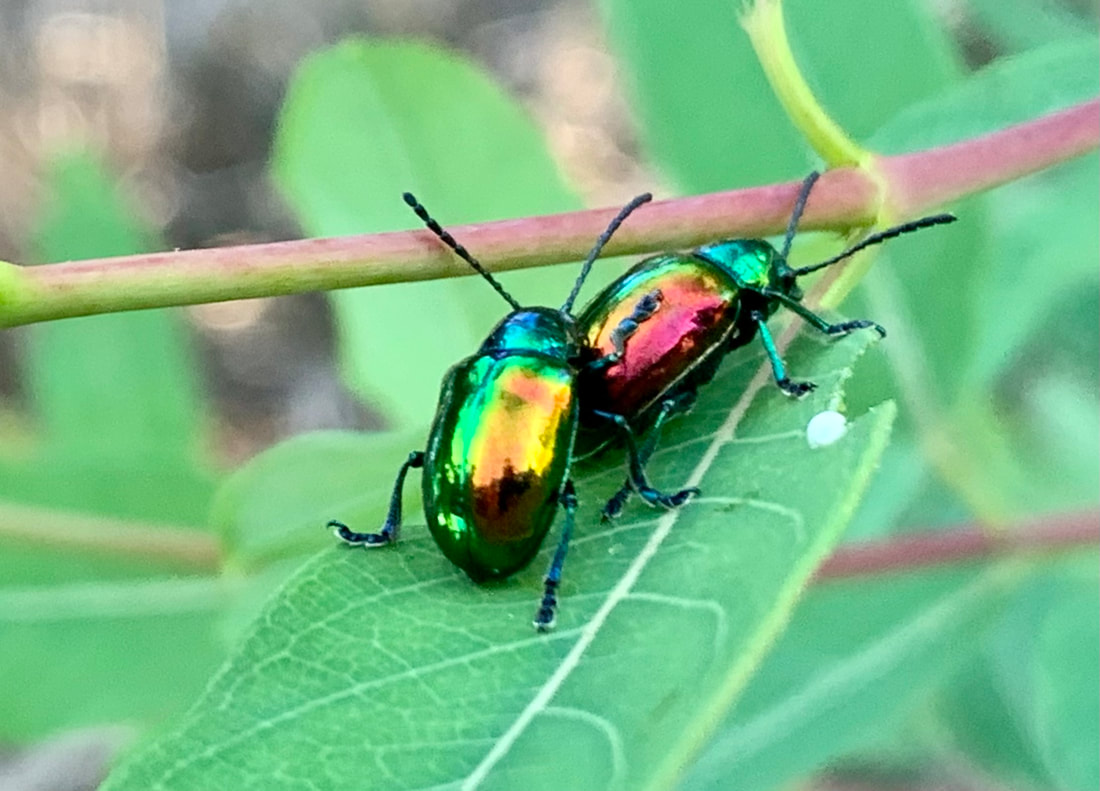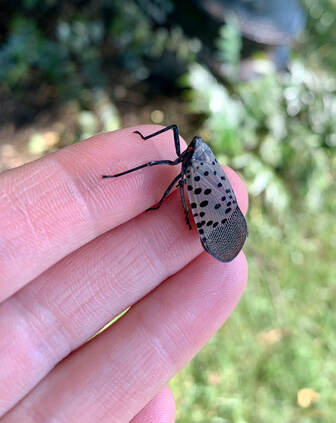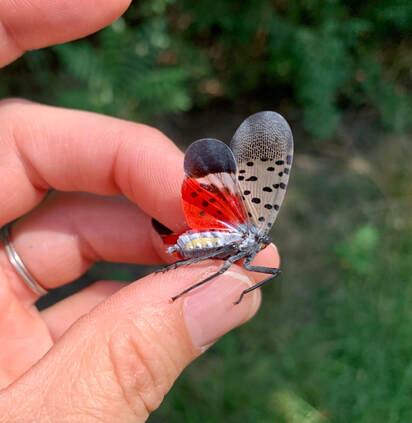Describe what you do on your property to support a healthy ecosystem. Tree and her family live on 3 acres in Montgomery County that were previously logged, then used as a cow pasture. They leave the remaining wooded area alone and typically mow the grass a minimum number of times during the summer. “We mostly mow to keep the tick population away from the house”, she explained. They try to minimize their use of chemicals. “I try to manage insect pests in my vegetable garden by hand-picking caterpillars and squash bugs, or timing my plantings to avoid the worst of the insect damage.” She rarely cleans up her flower garden until late spring, “when most of the overwintering invertebrates have woken up.” A pile of cut wood is home for bugs, birds, snakes and the occasional rabbit. Her family has composted for years but recently got four pet Nigerian dwarf goats. “They have been getting much of my vegetable scraps as treats,” she said with a chuckle. The goats do their part by eating multiflora rose, autumn olive, and oriental bittersweet. “All of their soiled bedding now goes into the garden to enrich the soil.” Her family also has solar panels in the back yard. Tree truly enjoys sharing experiences in nature with her 14-year old daughter. “We recently saw a pair of black snakes mating, which offered a wonderful chance to discuss what an ecosystem is and the importance of procreation by animals that are integral to the balance of nature.” What is the most amazing thing you have experienced in nature? Tree had a marvelous list of amazing things she has seen in nature. Here are just a few:
What is something you would like to share with ORMN members?
Tree shared something that is rooted in the concept of biophilia: “One thing I have learned over the years is that not everyone has the same need or desire to experience or learn about nature as deeply as others do.” She has recognized that some folks are perfectly content to watch birds at a feeder or take a walk in a park. “My grandmother adored butterflies and flowering plants – but she only knew their common names,” Tree noted. She continued, “Some people simply appreciate the beauty of the natural world without understanding the workings of the ecosystem before them, and that’s perfectly fine.” She believes the more people who enjoy nature on any level, the greater the support there will be for protecting our natural resources. With respect to the spotted lanternfly, “The more you know about this insect, the less fearful you will be,” Tree stated. “This isn’t like a Japanese horror film (remember Mothra?). These insects are actually fairly fragile. They do not bite, they don’t invade your home like stink bugs, they are not a major threat to landscape plants and, they are easy to recognize and control.” Interviewed by Charlene Uhl, March 2022 |
AuthorWrite something about yourself. No need to be fancy, just an overview. Archives
December 2023
Categories
All
|




 RSS Feed
RSS Feed